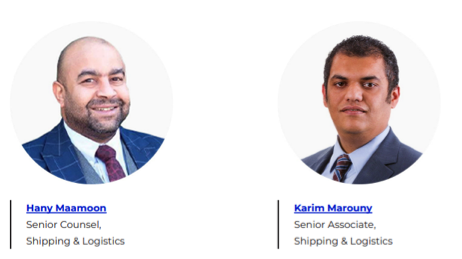
by Hany Mamoon and Karim Marouny
Al Tamimi and Company, Egypt
w: www.tamimi.com
e: info@tamimi.com
t: +20 2 3368 1000
Groundings in the Suez Canal – Law and Liability
The Suez Canal is one of the most important and busiest trade routes in the word being the shortest link between the east and the west due to its unique geographic location if compared with the Cape of Good Hope, which makes it of special importance to the world and to Egypt as well.
The Suez Canal’s significance to global trade was clearly manifested during the grounding of the Ever Given on March 2021, the mega box vessel which blocked the Canal for six days causing global disruption in shipping and keeping plus 400 ships stranding at both ends of the Canal.
The truth that is well known to the Suez Canal Authority/SCA and some of the regular customers of the SCA is that groundings in the Canal are not seldom taken place, but to the contrary, tens of groundings take place each year. But the majority of those incidents are being dealt with efficiently and in a timely manner by the SCA and with absolute discretion. In its recent history, the SC has encountered grounding incidents of a more severe nature but were not highlighted by the international media or posed a threat to international trade because of their grounding locations, which coincidentally in take place in one of the SCA’s bypasses. One of the major untold incidents is the 170,000 dwt bulker NEW KATERINA which suffered multiple hull breaches and ran on Feb 25, 2016, and remained aground for twelve days, and was not able to clear the canal before the 30th of April of the same year after discharging its cargo of iron ore which was already damaged by the ingress of water.
Groundings across the Suez Canal do raise legal questions as to who is responsible for grounding incidents under Egyptian law. The main points of concern are:
1. Are vessel owners & operators liable in the event of grounding?
2.Would vessels’ owners & operators respond to a fault committed by the master?
3.Would pilotage shifts liability if an incident occurs as a result of the pilot’s negligence?
4. Are waterway authorities liable in the event of vessels running aground?
This article provides some clarity regarding who is responsible for what and when.
The Relevant Legal Framework
With respect to liability, Egyptian Maritime Law (EML) recognizes the application of the regulations issued by the administrative authorities with respect to Pilotage. In the cases
of the groundings, the rules of navigation issued by SCA should apply.
Articles 286 and 287 of the EML delineate liability for incidents that take place while the vessel is under pilotage. In line with most maritime legislations, the aforementioned articles state that:
1. The management and command of the vessel remain the master’s responsibility during navigation.
2. The ship’s operator shall be held solely liable for damage caused to a third party as a result of faults committed by the pilot in the implementation of the pilotage process.
Article 4 of the SCA rules of navigation, provides further detail regarding the above mentioned principles with respect to navigation through the Suez Canal. In accordance with said article, owners, operators, and/or charters of a vessel are responsible for any direct or indirect damage and/or consequential loss caused by a vessel to itself, SCA properties, personnel, or obstructing navigation in the Canal, even if the fault attributed to the vessel or its crew is not intentional. It further outlines that owners, managers, charterers, and/or operators hold themselves responsible for any mistakes resulting from the pilot’s advice or SCA personnel.
Likewise, Article 11 of the same rules states that masters are solely responsible for all direct or indirect damages or accidents of any kind resulting from the navigation or handling of their vessels and that the pilot is merely an advisor and is not held responsible for any damages sustained during transit as the master is solely responsible for the vessel.
According to Article 103 of the SCA rules of Navigation, when a vessel stops in the Canal as a result of an accident other than collision, engine troubles, auxiliary and steering gear troubles, the SCA will ensure speedy clearance of the waterway and assist with the necessary tugs to afloat the vessel in question, free of charge.
Notwithstanding the above, Article 103 of the Rules is in practice obsolete in cases of groundings, as the SCA requires vessels to submit a request to hire tugboats and other equipment to tow and re-float vessels for any reason.
Said request is made via a fixed form application form provided by the SCA, to be submitted by the vessel agents to the SCA to hire tugboats as well as equipment and personnel necessary for re-floating and if necessary, towing the vessel in accordance with the SCA’s standard published tariff.
Although the SCA enjoys extensive sole powers for the operation of the Canal, including the valuation of costs and compensation that may result from incidents taking place in the Canal, including grounding incidents. However, according to the various legal precedents rendered by the Egyptian Court of Cassation – the SCA has the powers that guarantee the smooth running of the facility, and it implements it without being bound by government regulations. Therefore, the SCA, according to its own regulations when an accident occurs in the Canal, has the right to establish the elements of responsibility and estimate the damage in the manner it deems appropriate by its technical departments. It may conduct any inspections it deems appropriate to establish the elements of liability in the manner prescribed in the law, whether in terms of error, damage, causation, and claiming the offender to compensate for the damage. Nonetheless, all this is then subject to the discretion of the trial court when resorting to the judiciary. consequently, vessel owners/ operators are entitled to resort to litigation to challenge the SCA’s claim in cases where they can prove that their vessel should not be held liable for the incident giving rise to the claim. Or in cases, they deem the SCA’s respective claims are somehow exaggerated.
Lessons learned from major grounding incidents that took place in the Canal
1. The master is the ultimate commander on board his vessel and should not refrain from taking all necessary decisions that would insure the safety of the vessel under his command, even if they lead to financial losses. Like, such as refraining from commencing the Canal transit, if he foresees that bad weather may affect commanding/steering the vessel through a relatively narrow waterway such as the Suez Canal.
2.Vessel masters should use the authority granted to them to dismiss the pilot if they foresee that his guidance is not accurate or risky. They are to then immediately request that the SCA substitute the pilot.
3. The SCA should issue a navigation protocol for giant vessels including the procedures and instructions to be followed for their safe navigation, including suspending navigation of said vessels during windstorms. Or proceeding with extreme caution in the sectors of the Canal where there are no duplications/bypasses.
4. The SCA should upgrade its tugboat fleet to ensure availability with higher towing capacities that are adequate for the size of modern vessels. The SCA should also ensure the availability of tugboats at both entrances of the waterway. Bearing in mind that the SCA is already taking steps in that direction, expansion and deepening works of the southern sector (where the famous Ever Given incident occurred) are already taking place. Duplication is also underway in the Bitter Lakes located at approximately the middle of the canal to be linked to the new 37 Km bypass opened in August 2015.


